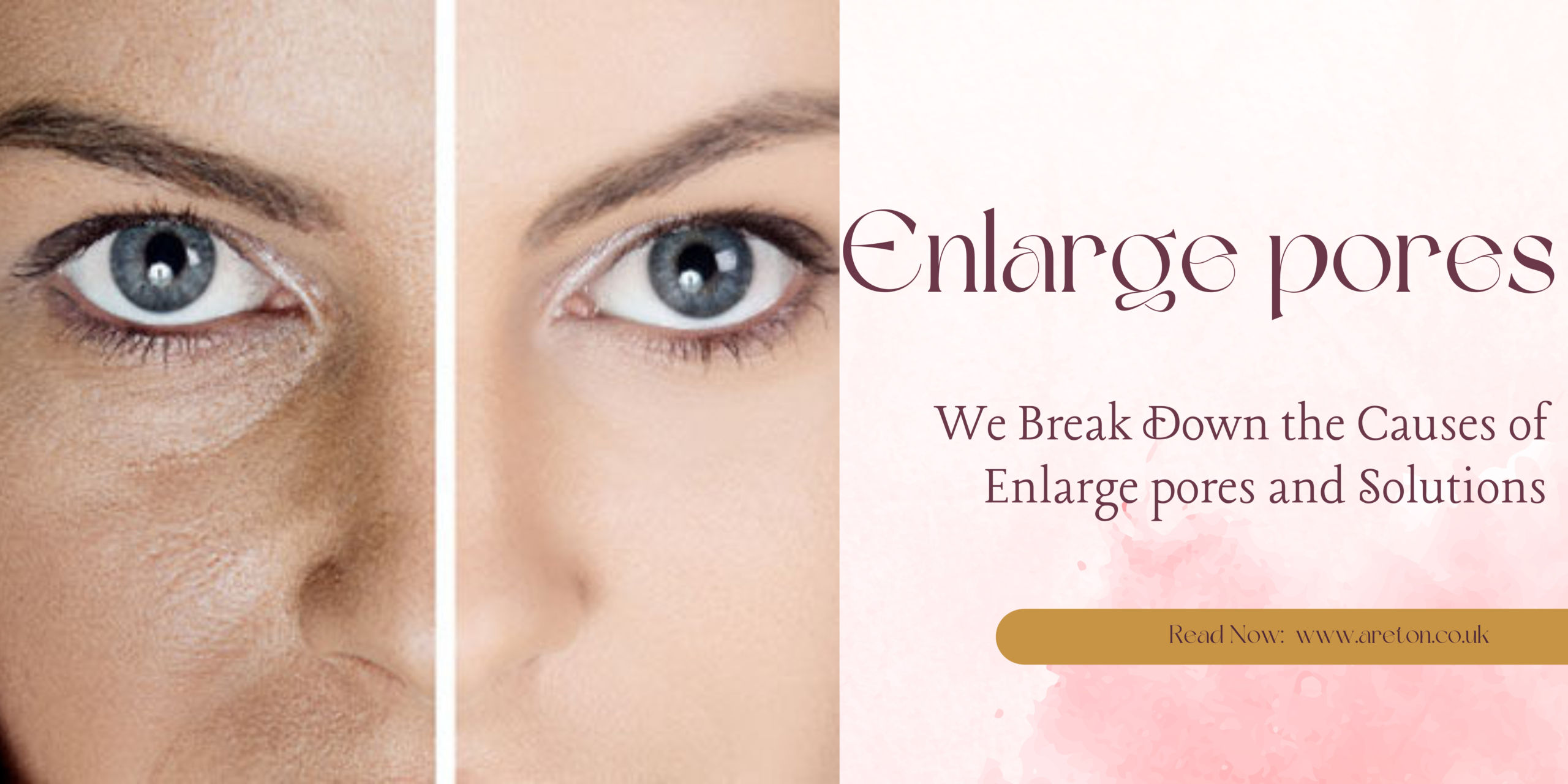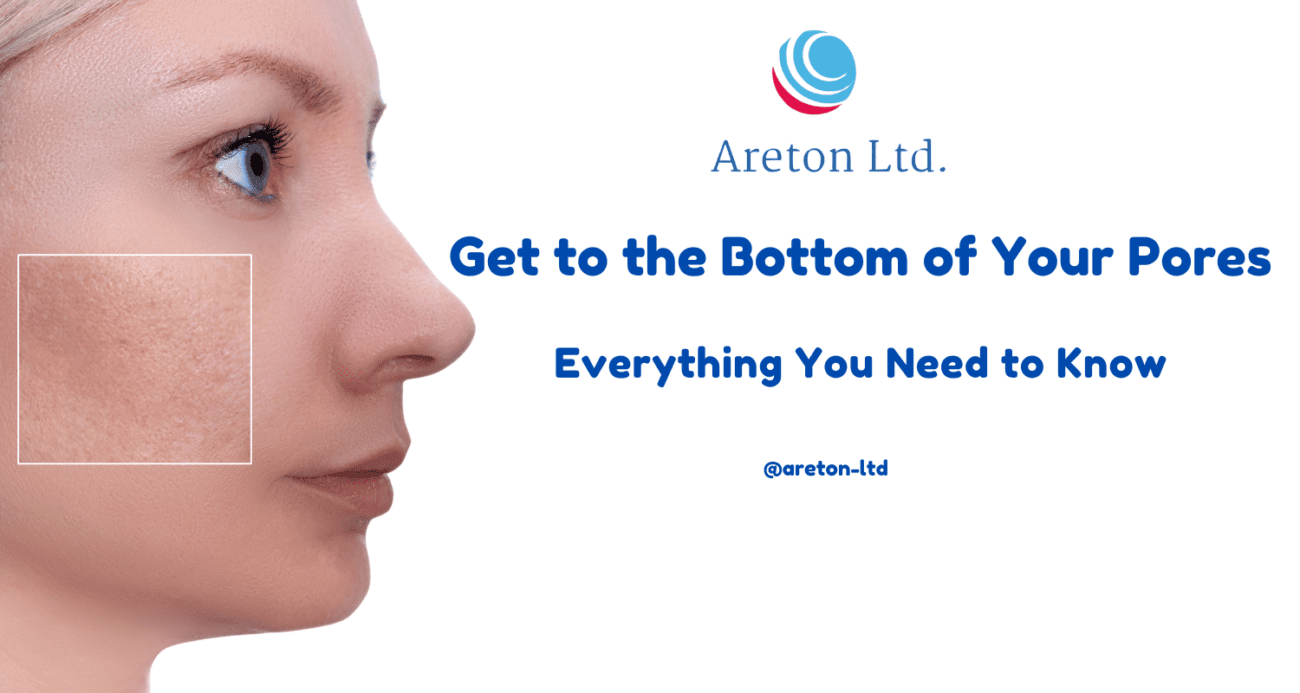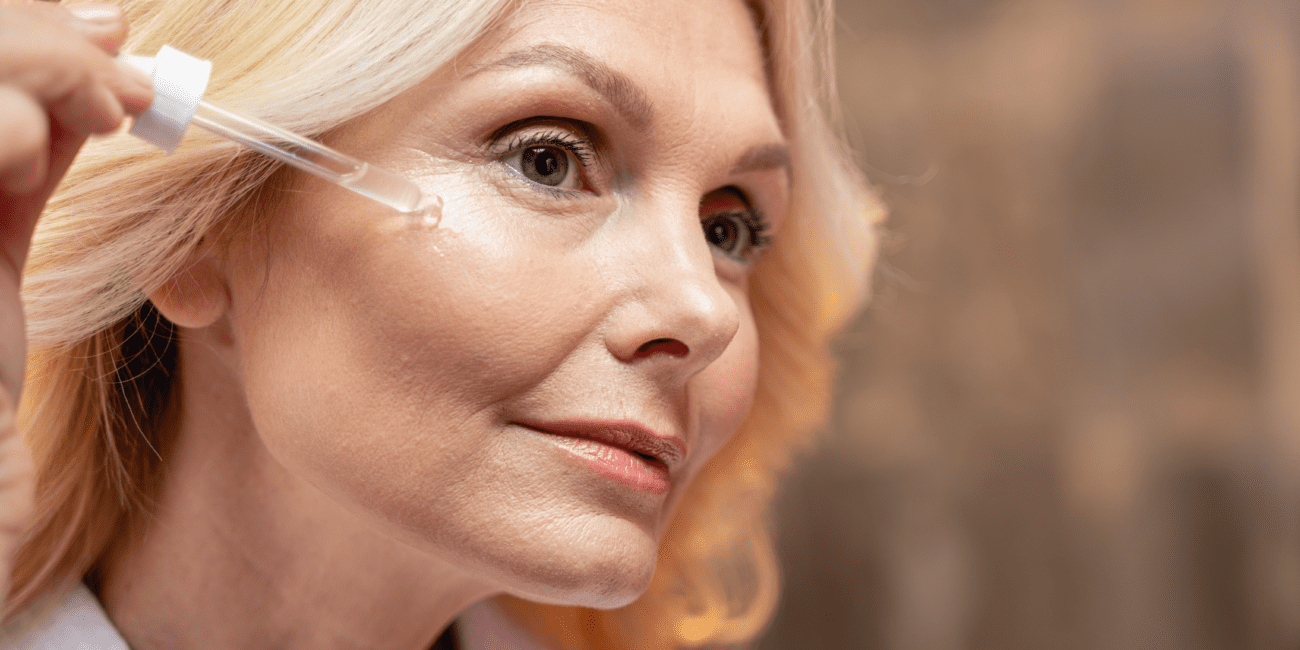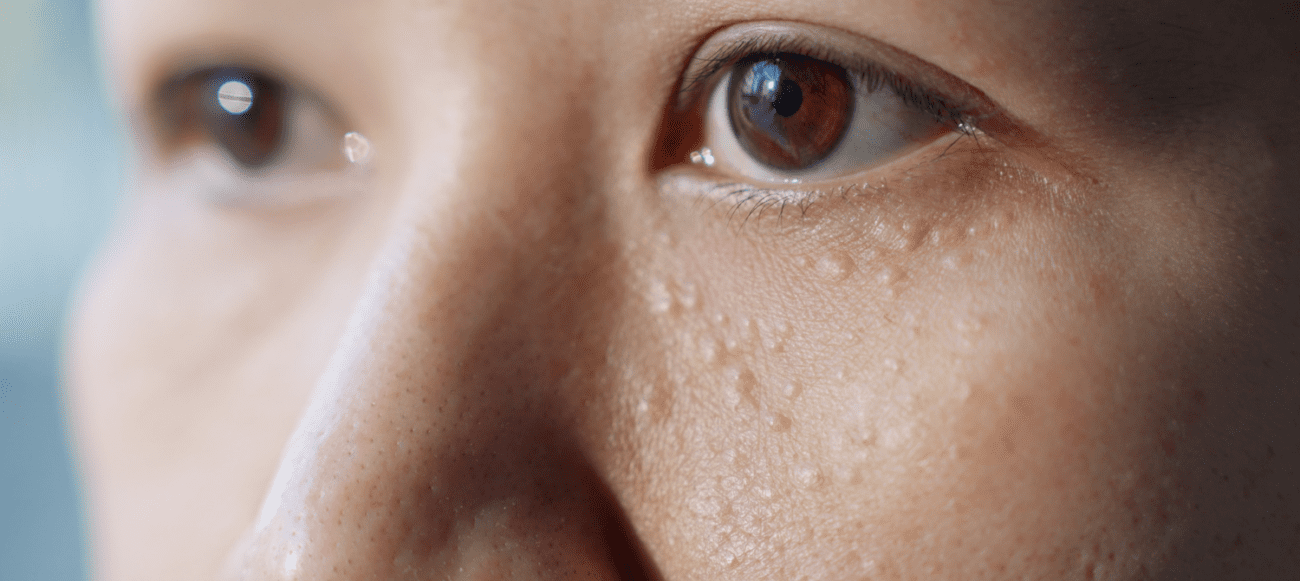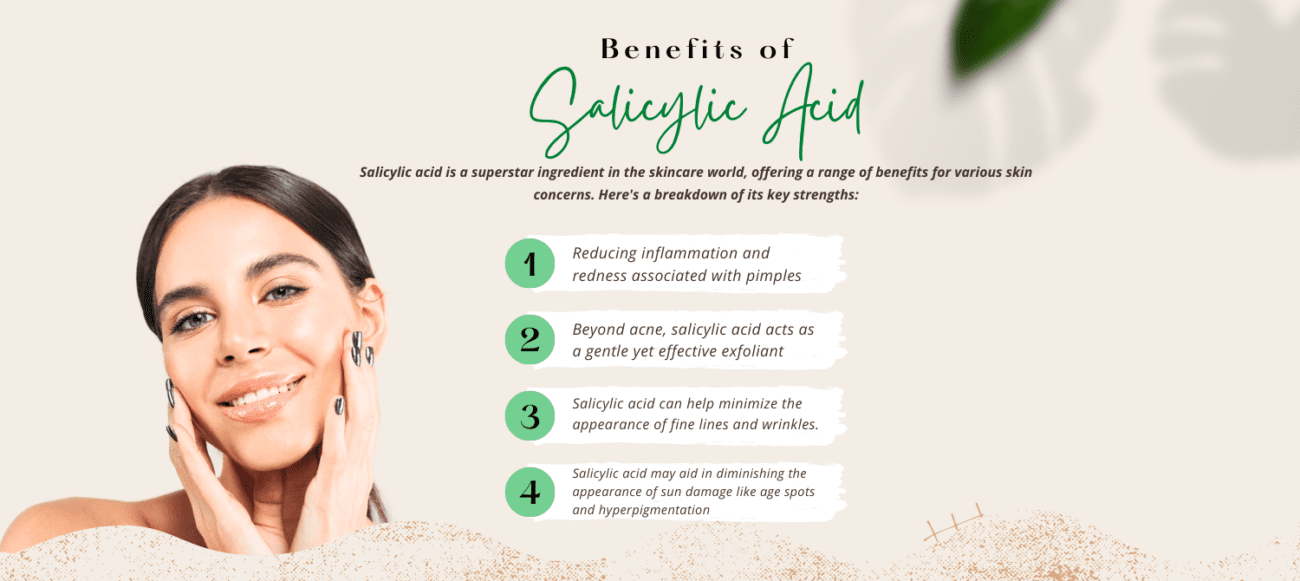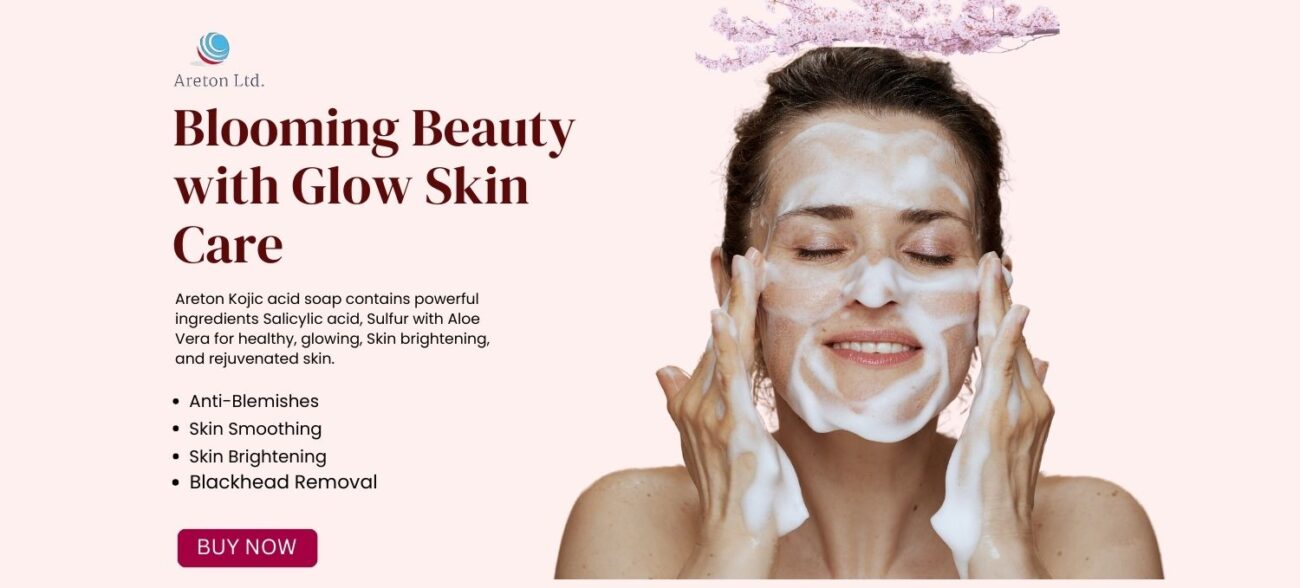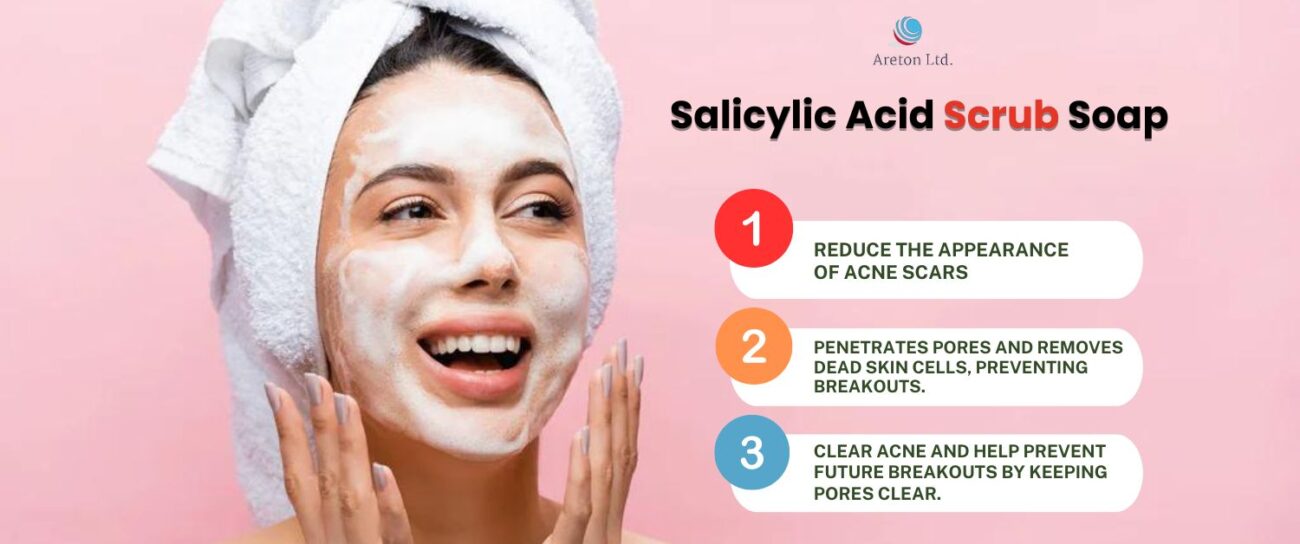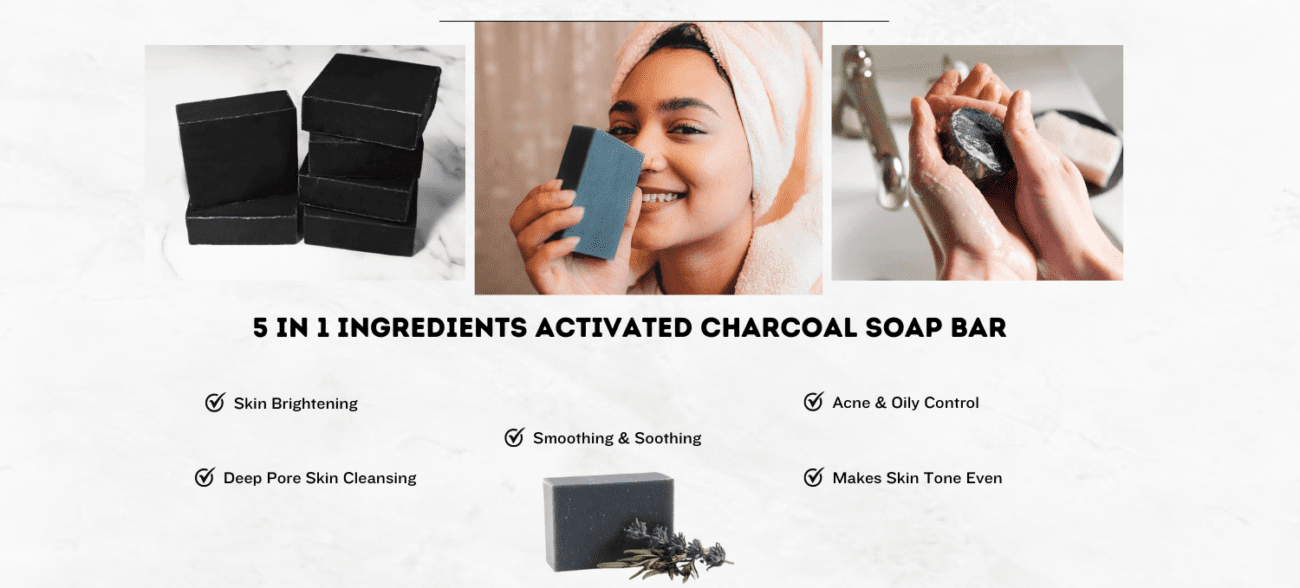What are enlarged pores?
Enlarged pores are depressions in the facial skin surface that contain one or more openings to the ducts carrying sweat and oil from their respective eccrine glands and sebaceous glands.
Who gets enlarged pores?
Enlarged pores can be seen at all ages and in all ethnic groups. Certain ethnic groups may have larger pores, particularly those of African and Indian ancestry. Pores often appear larger with age.
There are conflicting data on whether men or women are more prone to large pores. In women, pore size may fluctuate during the menstrual cycle, with the largest pore size occurring during ovulation.
What causes enlarged pores?
Factors that may lead to enlarged pores include:
- Increased sebum production
- Hair follicle size
- Use of comedogenic products
- Loss of skin elasticity with age
- Sun damage.
Acne is associated with enlarged pores — when sometimes open comedones (blackheads) can be seen within a pore. Inflammatory acne may cause enlarged pores through weakening sebaceous gland and hair follicle openings, making them more prone to blockage.
What is the treatment for enlarged pores?
Treatments that focus on preventing and shrinking large pores are not very effective. They include:
- Avoidance of skin creams that induce blackheads and whiteheads
- Weight loss (which is reported to reduce sebum production)
- Chemical peels
- Topical nicotinamide
- Plant-derived copper chlorophyllin complexes
- L-carnitine
- Topical retinoids.
Oral treatments that are used for acne may also help. These include:
Physical treatments targeting the sebaceous glands may help enlarged pores. These include:
- Laser treatment
- Radiofrequency microneedling (skin needling).
What Causes Enlarged Pores?
Enlarged pores can be caused by a variety of factors, some within your control and others that are simply a result of genetics or the natural aging process.
Heredity and Genetics
Some people are simply prone to enlarged pores based on their genetic makeup. The characteristics you inherit from your parents play a big role. If they struggled with large pores, you’re more likely to as well. The size of your pores is determined by genetics.
Aging
As we age, our skin produces less collagen which leads to pores becoming larger and more visible. The walls around pores weaken over time. While you can’t stop the aging process, you can care for your skin to minimize pores getting stretched out.
Excessive Oil Production
Oily skin types tend to have enlarged pores because the pores get clogged and stretched out from excess sebum production. The oil oxidizes and sticks to pore walls, causing them to dilate and appear bigger. Controlling excess oil through proper skincare can help minimize this.
Sun Exposure
UV exposure damages collagen and elastin in the skin, leading to loss of elasticity in pore walls. This makes them appear larger overtime. Always wear sunscreen to protect your skin from further sun damage.
Smoking
The chemicals and toxins in cigarette smoke deprive skin of oxygen and nutrients. This leads to damage of skin proteins like collagen and elastin. Smoking accelerates aging skin concerns like enlarged pores.
Dehydration
When skin is dehydrated, it produces more oil to overcompensate. This can clog pores and cause them to stretch. Drink plenty of water and use moisturizers to ensure skin stays hydrated.
Medications
Certain medications like corticosteroids can trigger the skin to produce more oil, potentially leading to clogged, stretched pores. Talk to your dermatologist if you think a medication is enlarging your pores.
Genetics and Heredity
Genetics play a major role in determining the size of pores and the amount of oil gland activity. Some people are simply born with larger pores that are more visible on the surface of the skin. Ethnic backgrounds that tend to have oilier skin types, such as African-American, Asian, and Latin skin, are more prone to enlarged pores. This is due to having more active sebaceous oil glands in these populations.
Additionally, enlarged pores can run in families. If your parents have bigger pores, then it’s likely you’ve inherited that trait as well. The characteristics of your skin are established before birth based on the genes passed down from your mother and father. While you can’t change your genetics, there are ways to minimize the appearance of enlarged pores through proper skin care. But the tendency will always be there if it’s in your family history.
Aging
As we age, our pores naturally stretch and appear larger over time. This is due to the breakdown of collagen and elastin in the skin, which leads to a loss of elasticity and causes pores to enlarge. Dead skin cell buildup in pores also contributes to their stretched out appearance.
As we get older, our skin produces less collagen and elastin – proteins that keep skin firm, supple, and elastic. This causes the skin to lose its ability to snap back after stretching, and pores remain dilated instead of contracting back to their original size. Additionally, the turnover rate of skin cells slows down as we age. Dead skin cells can stick together and clog pores instead of shedding properly, which further stretches them out. Environmental damage from sun exposure and pollution also degrades collagen and elastin over time. The cumulative effects of aging cause pores to progressively enlarge.
Excessive Oil Production
Overactive sebaceous glands produce excess oil that can lead to enlarged pores. The sebaceous glands are located just under the skin’s surface and secrete an oily substance called sebum. This oil helps to lubricate and protect the skin.
However, some people have overactive sebaceous glands that produce too much sebum. When excess oil is produced, it can get trapped in the pores along with dead skin cells and bacteria. The trapped oil stretches the pores, causing them to dilate and appear larger.
There are several factors that can cause the sebaceous glands to produce excessive oil, including:
Hormones – Hormonal changes related to puberty, menstruation, pregnancy, or menopause can trigger increased sebum production. Male hormones called androgens stimulate the sebaceous glands.
Genetics – Some people are just genetically prone to having overactive oil glands. This runs in families.
Diet – A diet high in refined carbohydrates and sugar can increase sebum production.
Stress – Stress hormones may also ramp up oil gland activity.
Managing excess oil production through proper skin care and addressing the underlying causes can help minimize enlarged pores.
 Rated 0 out of 5¡A la Venta!Add to basket
Rated 0 out of 5¡A la Venta!Add to basket$10.00Original price was: $10.00.$5.99Current price is: $5.99. Rated 0 out of 5¡A la Venta!Add to basket
Rated 0 out of 5¡A la Venta!Add to basket$10.00Original price was: $10.00.$5.99Current price is: $5.99.
Sun Exposure
Sun exposure is one of the leading causes of enlarged pores. UV radiation from the sun damages collagen and elastin fibers in the skin. Collagen and elastin give skin its strength and elasticity. When these fibers break down, skin becomes looser and more prone to wrinkles and sagging. This loss of elasticity causes pores to enlarge.
Tanning also plays a role. Exposure to UV rays thickens the outer layer of skin, causing pores to become more noticeable. The increased melanin production that causes tanning makes pores appear darker and larger. While some sun is needed for vitamin D, excessive unprotected sun exposure will accelerate aging of the skin and enlargement of pores over time. Wearing sunscreen daily is crucial to minimize sun damage.
Smoking
Smoking cigarettes or other tobacco products can contribute to enlarged pores for several reasons:
Chemicals in tobacco smoke like nicotine and carbon monoxide degrade collagen and elastin in the skin. Collagen and elastin are proteins that keep the skin firm, supple and elastic. When they break down, the skin loses its bounce and resilience.
Smoking reduces blood flow and oxygen supply to the skin. With less blood flow, the skin doesn’t receive enough nutrients and moisture. This leads to dryness, dullness and a loss of radiance.
The toxins in cigarette smoke cause premature aging and loss of elasticity in the skin. This makes pores appear larger over time. Smoking just 10 cigarettes per day for 10-20 years can lead to visible changes and aging in facial skin.
By avoiding smoking and secondhand smoke exposure, you can help minimize pore size and maintain a fresher, younger-looking complexion. The toxins and chemicals in cigarette smoke degrade the structural proteins in skin, reduce blood flow, and accelerate aging. Making the choice not to smoke will help pores stay tighter and smaller.
Dehydration
Dehydration is a major cause of enlarged pores. When skin becomes dehydrated due to lack of water, it can lead to dry, flaky skin. The top layer of skin is made up of dead skin cells that naturally slough off over time. However, without proper hydration, these dead skin cells don’t shed properly and can build up in pores. This causes pores to stretch out and appear larger than they really are.
Drinking plenty of water is key for reducing the look of enlarged pores. Water helps to plump up skin cells and keeps the skin’s moisture barrier intact. Staying hydrated also helps flush out pores to prevent dead skin cell buildup. Aim to drink at least 64 ounces of water per day for hydrated, glowing skin. Drinking water throughout the day will keep skin looking supple and pores free of excess debris.
Medications
Certain medications can contribute to enlarged pores by increasing oil production in the skin. Some of the main culprits include:
Corticosteroids – These anti-inflammatory drugs like prednisone can stimulate the sebaceous glands, leading to increased oil production and clogged pores.
Lithium – This mood stabilizer used to treat bipolar disorder is known to enlarge pores in some patients. The lithium impacts the skin’s oil glands.
Androgens – Both endogenous and exogenous androgens, like testosterone, can overstimulate oil glands and pores.
Other medications potentially linked to enlarged pores:
Anabolic Steroids – Illegally used for bodybuilding, anabolic steroids mimic the effects of testosterone, increasing sebum production.
Amphetamines – Drugs like Adderall used to treat ADHD may also rev up oil gland activity.
If medications are contributing to your enlarged pores, talk to your doctor about potential alternative treatments or remedies to counteract the pore-clogging side effects. Adjusting the dosage or switching prescriptions may help in some cases.
Treatment Options for Enlarged Pores
There are several ways to treat enlarged pores, ranging from over-the-counter products to in-office procedures.
Over-the-Counter Creams and Scrubs
Many drugstore skincare products claim to shrink pores. Look for products containing alpha hydroxy acids (AHAs) like glycolic acid or beta hydroxy acids (BHAs) like salicylic acid. These exfoliating ingredients help remove dead skin cells and excess oil from pores. Products like cleansers, toners, scrubs, peels, masks and spot treatments containing these ingredients can help minimize the appearance of pores with regular use.
Prescription Retinoids
Retinoids like tretinoin and tazarotene are vitamin A derivatives that can help unclog pores and increase cell turnover. This helps pores appear smaller over time. Prescription retinoids are stronger than over-the-counter retinol products and may cause irritation, so it’s important to ease into using them slowly under a doctor’s supervision.
In-Office Procedures
More intensive in-office treatments can also treat enlarged pores. These include:
Laser treatments: Ablative and non-ablative lasers can help tighten pores by stimulating collagen production. Multiple treatments are usually needed.
Chemical peels: Medium-depth peels with glycolic or salicylic acid can reduce pore size by exfoliating dead skin cells. Several treatments may be necessary to see results.
Microneedling: Microneedling creates tiny injuries in the skin to stimulate collagen and elastin. This can help tighten pores with a series of treatments.
Our Skincare Soaps
Our handmade skincare soaps contain ingredients like charcoal, salicylic acid and tea tree oil to cleanse deeply, absorb excess oil and exfoliate dead skin cells from pores. With regular use, our soaps can help minimize pores and improve skin texture and clarity. Our Charcoal Soap Bar draws out impurities from pores with activated charcoal. Our Salicylic Acid Scrub Soap and Normal Salicylic Acid Soap exfoliate with salicylic acid to keep pores clear. Used as part of your daily skincare routine, these natural soaps can help visibly reduce enlarged pores over time.
Our Skincare Soaps
Our skincare soaps are specially formulated to help cleanse enlarged pores gently and effectively. We offer three main products:
Charcoal Soap Bar
The charcoal soap bar contains activated charcoal, which is known for its ability to draw out impurities and toxins. Charcoal deeply cleanses the skin and detoxifies pores, helping to remove excess oil, dirt, and dead skin cells. With regular use, the charcoal bar can minimize the appearance of enlarged pores. It leaves skin feeling fresh and clean.
Salicylic Acid Scrub Soap
This exfoliating soap contains salicylic acid, a beta hydroxy acid that softens and loosens dead skin. As you use the textured soap, it gently scrubs away dead cells and impurities clogging pores. Salicylic acid also helps regulate oil production. The soap smooths skin texture and refines pores for a clearer complexion.
Normal Salicylic Acid Soap
Our normal salicylic acid soap contains a lower percentage of salicylic acid. It is gentle enough for daily cleansing of acne-prone and oily skin types. The soap helps dissolve pore-clogging oil and exfoliate dead skin cells. With regular use, it can help minimize pores and control excess oil and shine.
All our skincare soaps are made with natural ingredients that cleanse skin without over-drying. They can be used daily as part of a skin care routine to improve enlarged pores.


